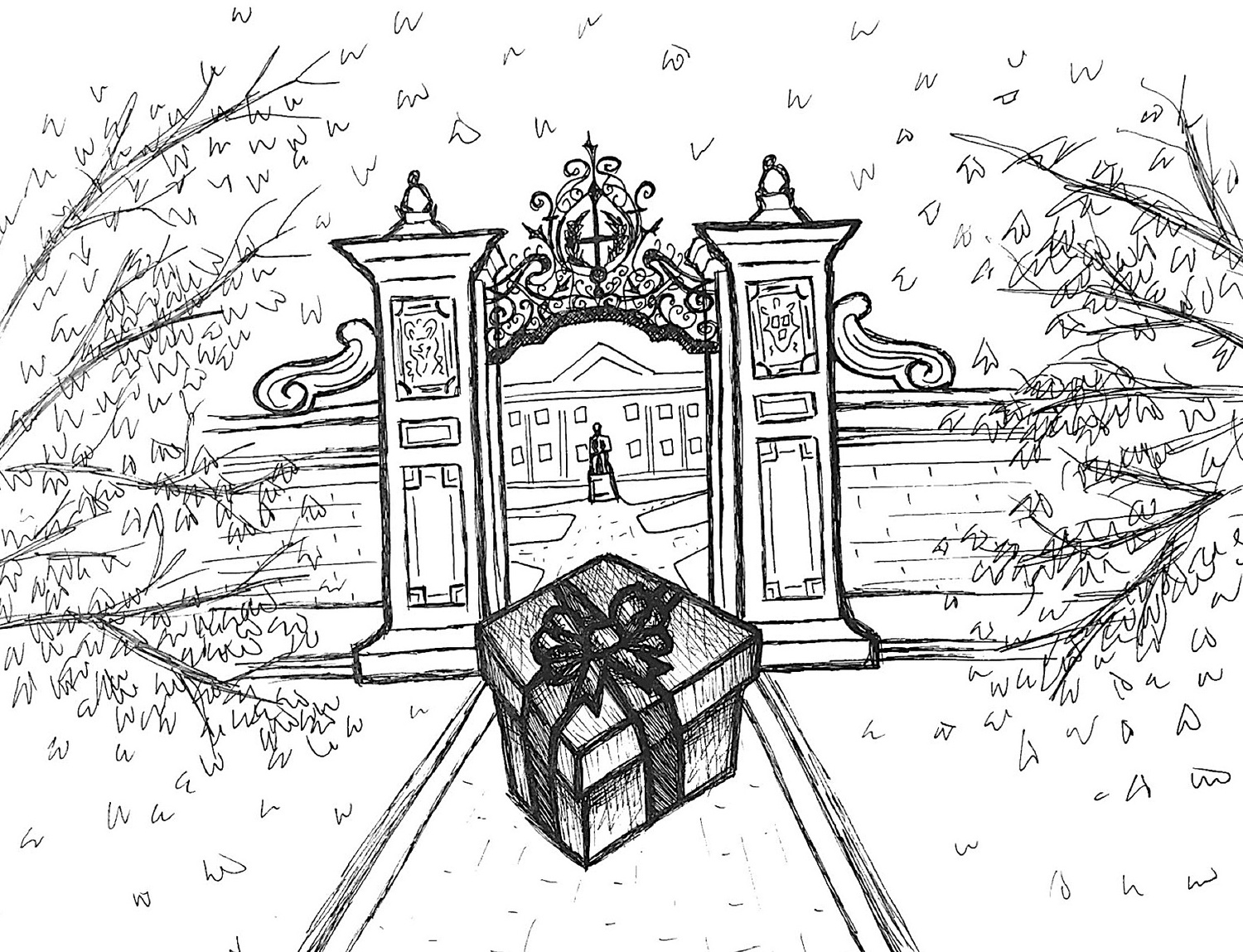
News
Summers Will Not Finish Semester of Teaching as Harvard Investigates Epstein Ties

News
Harvard College Students Report Favoring Divestment from Israel in HUA Survey

News
‘He Should Resign’: Harvard Undergrads Take Hard Line Against Summers Over Epstein Scandal

News
Harvard To Launch New Investigation Into Epstein’s Ties to Summers, Other University Affiliates

News
Harvard Students To Vote on Divestment From Israel in Inaugural HUA Election Survey
What Do We Owe Harvard?
I want the doors that opened to me here to be open to students who come after me, and even more so.
My thesis is finally turned in, and the end is at last in sight. Senior Gift Marshals will soon begin their polite and persistent requests for donations to the Senior Class Gift, our extracurriculars will collect our post-Harvard contact info, and we will become part of the Harvard alum network on what is hopefully a sunny afternoon in May. Before and after we vacate our dorms, we will be constantly petitioned for financial support for Harvard and our assorted extracurriculars and teams.
Our attitudes toward the Senior Gift and other similar requests to give back spark a critical conversation about what we believe we owe to Harvard, if we believe we owe anything at all. We often have understandable hesitations regarding our own financial constraints or ethical quandaries of forking over money to the “Great Capitalist Satan” or “Kremlin on the Charles.” We want to know why such a rich institution even needs our gifts, and want to guarantee that our gifts will be impactful.
I do not claim that every single senior should give at least something to Senior Gift or that every alum should donate something, nor that every student’s Harvard experience merits a display of gratitude. I recognize that even a small donation would be a real financial burden for some of my classmates. But I would argue that some of the assumptions behind our hesitations about giving are not as altruistic or as authentic as we imagine them to be.
The opinion that most of us owe something to Harvard and that some signal of gratitude is worthwhile is not likely to be a popular one. By the time we graduate, most of us will feel that Harvard did nothing but take and take and take from us, draining our time, emotional well-being, and resources. None of us expected this journey to be easy, but few of us expected it to be so hard, so often.
But I am, thankfully, not nearly the same person I was freshman year, nor are my friends and peers the same people they were freshman year. We are perhaps more cynical or burnt out, but we have grown, we have become stronger, and we have become something far more than our freshman selves. The conversations that have changed my life, the experiences on campus and far beyond that have let me see the world past my home, they just wouldn’t have happened without Harvard.
Insofar as Senior Gift and other campaigns are often framed as gift-giving, our seemingly prudent and wise desire to guarantee good stewardship of our funds misses the very nature of a gift. When we give birthday gifts to our friends, for instance, we don’t stand over them and say, “Now, this is what I want you to use it for! If you don’t use it in this way, I will not give it to you! Actually, your salary is much higher than mine, so I might not get you anything in the first place!”
When we give a gift, we are ultimately not concerned with the substance of the gift itself, even though we want to ideally give something useful or generous. We are not concerned with how it will or will not be used. We are usually not concerned with whether the person is absolutely deserving of some kind of material blessing in the first place.
We give because we care about the recipient and want to express our affections in a tangible way. A gift is first and foremost a reflection of the giver’s disposition to the receiver. I know that giving back to Harvard is not quite the same as giving to another person. But our experience here was made up of professors, classmates, beloved friends, and even challenging peers. It was made up of their vivid ideas, colorful stories, late night talks, and intellectual tests. Our Harvard experience was made up of people, people who we could spend an eternity repaying for their influence on our lives.
Therefore, I believe that I owe something to Harvard for everything that its students and teachers have given me. I want the doors that opened to me here to be open to students who come after me, and even more so. I know that what I can give financially or with my time will not go very far, and I know that Harvard doesn’t really need what pittance I can offer. But those hesitations will not be on my mind when I write that first check. Rather, I will think on the wisdom, joy, and laughter that I have shared in well-loved dorms and dining halls over the past few years, earnestly hoping that the next occupant of my soon-to-be-empty room will also delight in their seat at Harvard’s table.
Grace M. Chao ’19 is an Economics concentrator in Mather House. Her column appears on alternate Mondays.
Want to keep up with breaking news? Subscribe to our email newsletter.

